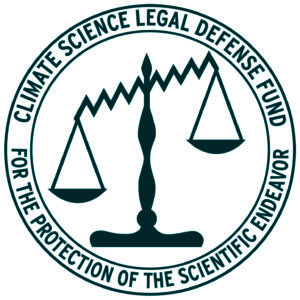September 21, 2020
Elections and Science: Climate Science Legal Defense Fund is here to help scientists prepare to participate in 2020 elections
Posted by Caitlin Bergstrom
 Climate Science Legal Defense Fund attorneys are teaming up with the American Geophysical Union to host two free webinars on September 28th and October 13th.
Climate Science Legal Defense Fund attorneys are teaming up with the American Geophysical Union to host two free webinars on September 28th and October 13th.
This webinar series will help scientists from all disciplines participate in electoral politics or engage directly with their legislators as private citizens fully, confidently, and effectively.
The first webinar in the series on 28 September from 2-3pm ET, entitled “How scientists can be involved in the run up to the 2020 election: a conversation with Climate Science Legal Defense Fund,” will cover how scientists can be involved in campaigning and other political activities during the 2020 election. Attorney Augusta Wilson will discuss whether scientists can donate to a candidate, volunteer for a campaign, and engage in other political activities. The goal is to ensure that researchers understand how to participate in politics to the fullest extent possible while minimizing any negative repercussions in their professional lives.
Wilson will discuss certain limitations on political expression and involvement likely to be relevant for many scientists during campaign season, particularly the Hatch Act. She’ll also talk about how the First Amendment protects scientists’ rights—both government employees and those in the private sector—to participate in political activism.
The next webinar on 13 October from 2-3pm ET, entitled “Scientific Advocacy and Congressional Powers,” will help scientists navigate the landscape around engaging directly with legislators. While a focus of the 2020 U.S. general election is on the presidential race, the outcomes of congressional races also has critical implications for science. Congress has significant power to fund (or not fund) scientific research. It also has significant oversight authority with respect to federal scientific agencies, including the ability to investigate how federally-funded science is conducted.
Scientists have the right to participate in activism and advocacy surrounding legislative matters. In this webinar, attorneys Lauren Kurtz and Augusta Wilson will discuss how scientists can engage in Congressional activism and advocacy without violating anti-lobbying laws. They’ll also talk about the powers and limitations of Congressional oversight into science, including how these powers can be misused to the detriment of research. And they’ll give suggestions for potential reform measures that would improve how the next Congress treats science.
Register for “How scientists can be involved in the run up to the 2020 election” here (28 September 2-3pm ET), and “Scientific Advocacy and Congressional Powers” here (13 October 2-3pm ET)

